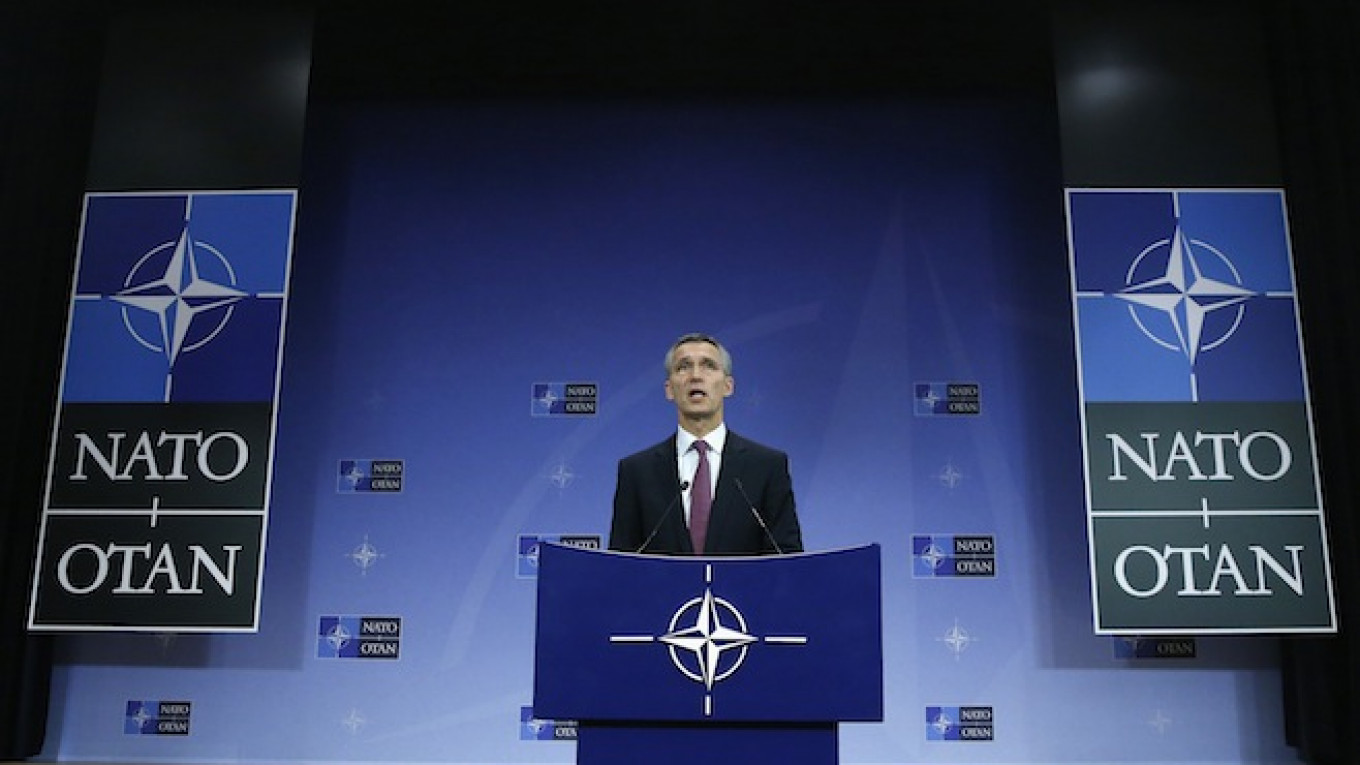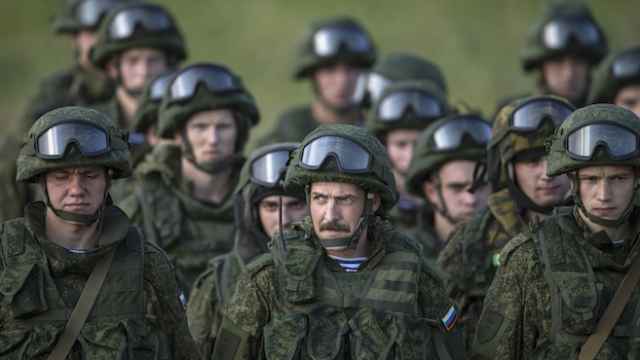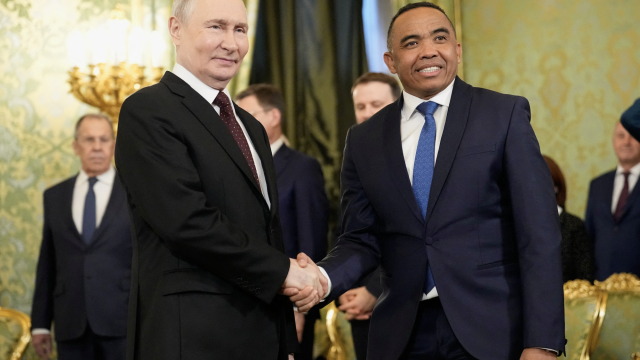BRUSSELS — Germany has urged NATO to set up an early warning system with Russia to prevent any military accident from spiraling out of control.
NATO's ties with Moscow have hit a post-Cold War low over Russia's annexation of Ukraine's Crimea region and what the alliance says is Russian backing for separatists in the east of the former Soviet republic.
Both NATO and Russia have stepped up military exercises, and experts say more frequent Russian air and sea patrols around Europe have raised the risk of an accident or clash.
As NATO has suspended cooperation with Russia, German Foreign Minister Frank-Walter Steinmeier said Tuesday that there were few possibilities for the two sides to exchange information on exercises and overflights.
"I think we are obliged to … take care that a conflict does not get out of control and lead to a military escalation. We need certain channels to check if some reports are true or not," he told reporters at a meeting of NATO foreign ministers.
NATO and Russian ambassadors have met only twice since the Crimea crisis erupted. One diplomat said a few countries, including France, Germany and Italy, were backing a proposal to use the existing NATO-Russia Council as a mechanism to avoid escalation.
NATO Secretary-General Jens Stoltenberg said the standoff between Russia and the West over Ukraine may last a long time.
"The changes we have seen are maybe something that will not go back to normal within a short period. NATO doesn't seek confrontation with Russia and NATO does not want a new Cold War. But we cannot compromise on the principles on which the security and peace in Europe have been based for many decades," he told a news conference.
Slovak Prime Minister Robert Fico said Tuesday that there was a high chance the Ukraine-Russia crisis would grow into a large conflict involving more than just those two countries.
"The probability of a military conflict is 70 percent," he told a forum hosted by daily newspaper Hospodarske Noviny.
"I am talking about a large military conflict now; I am not talking about a Russia-Ukraine conflict."
NATO has said repeatedly it has no plans to intervene in Ukraine, which is not an alliance member, but has reinforced eastern European allies worried about Russian intentions.
A Message from The Moscow Times:
Dear readers,
We are facing unprecedented challenges. Russia's Prosecutor General's Office has designated The Moscow Times as an "undesirable" organization, criminalizing our work and putting our staff at risk of prosecution. This follows our earlier unjust labeling as a "foreign agent."
These actions are direct attempts to silence independent journalism in Russia. The authorities claim our work "discredits the decisions of the Russian leadership." We see things differently: we strive to provide accurate, unbiased reporting on Russia.
We, the journalists of The Moscow Times, refuse to be silenced. But to continue our work, we need your help.
Your support, no matter how small, makes a world of difference. If you can, please support us monthly starting from just $2. It's quick to set up, and every contribution makes a significant impact.
By supporting The Moscow Times, you're defending open, independent journalism in the face of repression. Thank you for standing with us.
Remind me later.





